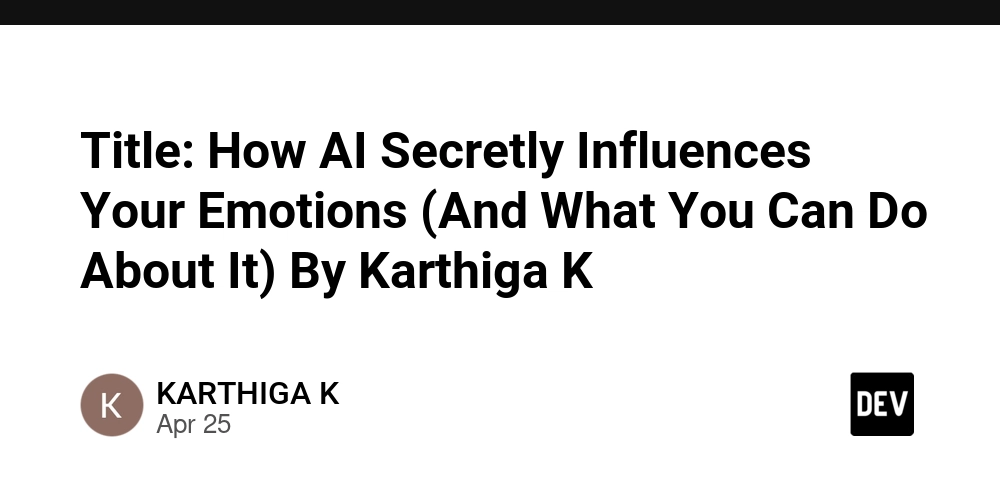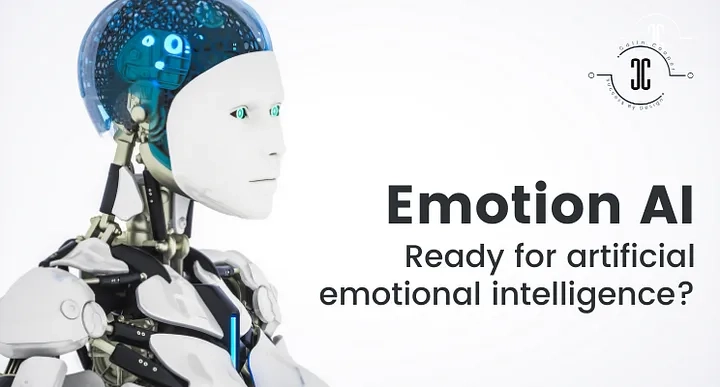In today’s digital world, AI isn't just predicting what we'll buy or what songs we’ll listen to next. It's actually shaping how we feel. Whether it's the videos we watch or the posts we scroll through, AI works quietly behind the scenes, influencing our emotions in ways we don’t even realize. 🤖💭
🧠 How AI Knows Your Emotions Better Than You Think
Every like, scroll, and pause you make online is data. AI takes this information to personalize what you see and hear. While this can be useful, it also means AI is subtly shaping your emotions. For example, if you're feeling a little sad 😢, AI might recommend slow, emotional music or videos. On the other hand, if you're feeling happy or energetic 😄, you’ll likely see more upbeat content. It’s a loop: your emotions affect the algorithm, and the algorithm affects your emotions. 🔄
📱 How Social Media & Music Apps Shape Your Mood
Apps like Instagram, TikTok, and YouTube are designed to keep you glued to the screen. They show you content that aligns with how you’re feeling. Have you ever found yourself binge-watching emotional videos and crying? 😭 It’s no accident. These platforms learn which content keeps you watching and give you more of it—sometimes even making your sadness or anxiety worse. Similarly, Spotify tailors its playlists to your mood 🎶. If it’s a rainy day and you’re feeling down, AI knows exactly what soothing music to recommend. 🌧️🎧
⚠️ The Hidden Bias Behind AI Algorithms
AI algorithms don’t really understand emotions the way we do. Instead, they look for patterns based on what gets the most engagement. So, while emotional manipulation isn’t necessarily the goal, it often happens because these systems try to keep your attention. Sadly, many algorithms favor content that sparks drama 😡 or sadness, which keeps us hooked. This can have unintended emotional consequences, especially when the algorithm amplifies negative feelings.
🤯 Emotional AI: Should Machines Read Our Feelings?
We’re entering an era where AI doesn’t just respond to our emotions—it can actually detect them. Emotional AI can analyze your voice tone, facial expressions, and even your text to understand how you're feeling. It's already being used in customer service, mental health apps, and even in classrooms. But here’s the big question: Should we let machines detect and respond to our emotions? And what happens when they get it wrong? 🤔
👩💻 My View as a Future AI Developer
As a first-year student in AI and machine learning, I’m learning about the incredible possibilities—and the huge responsibility—that comes with developing intelligent systems. As we continue building AI, we need to ask tough questions: Are we designing technology to improve people’s lives—or just to keep them addicted? How do we strike the right balance between personalization and emotional well-being? 🤖💡
As I continue my journey in this field, I hope to contribute to creating AI systems that respect human emotions, rather than manipulate them. The most powerful AI should empower us, not control us. 💪❤️
💡 Final Thought
AI is powerful. It’s not evil—but it’s also not neutral.
As users, developers, and future innovators, we all play a part in shaping how it affects our lives.
So the next time you’re scrolling, take a moment to ask:
👉 Is this content helping me feel better—or just keeping me online?






nice